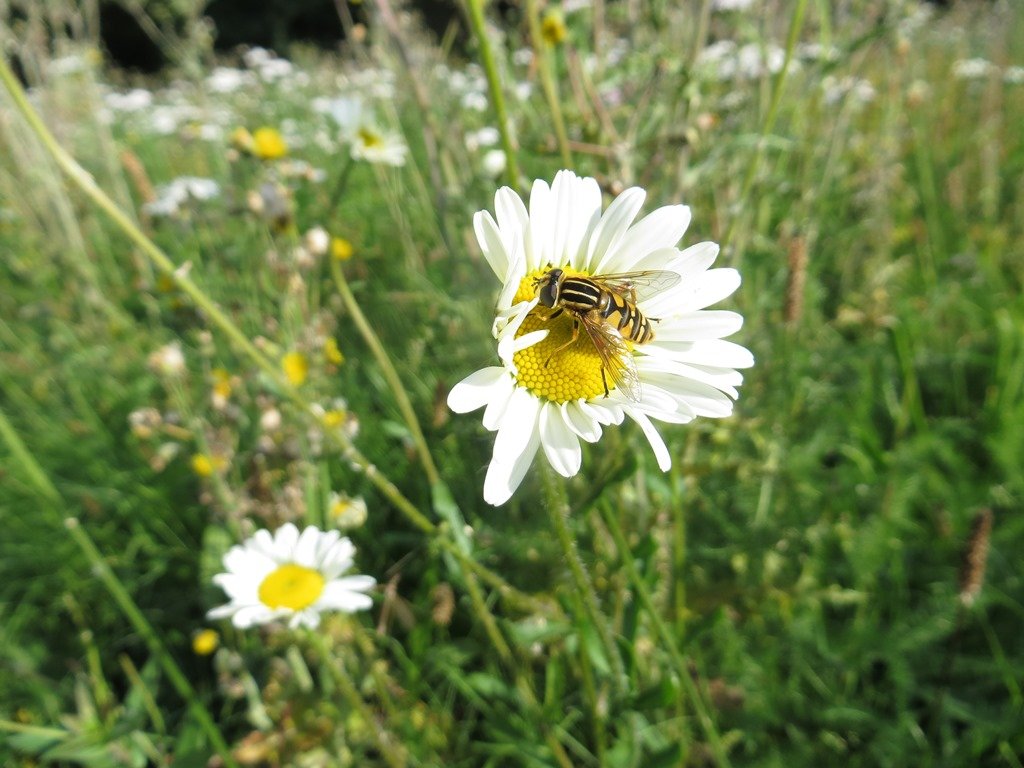Leaving Your Garden to Grow a Little Wilder
The simplest thing you can do for bugs in your garden is nothing. Relaxing your gardening a little to let nature take its course can go a long way towards providing habitats for insects.
That might feel like a stretch if you’re used to a perfectly manicured lawn and meticulously tended flowerbeds, but letting your garden grow just a little bit wilder will bring fresh life to it and you’ll probably come to love its newfound energy.
Here are a few things you can do (or not do) that will make your life easier and the lives of thousands of insects better:
– Leave your lawn a little longer. Different invertebrates like different grass heights. By letting your lawn grow for a little longer either in corners, around the edges or all over, you can give them a habitat.
– Let flowers grow in your lawn, too. Pollinators love flowers like white clover and buttercups, and they add colour to your grass.
– Your ‘weed’ might be a bug’s perfect plant. Weeds are, after all, just plants growing somewhere we didn’t put them. If they’re not causing a problem, let them grow.
– Let climbers such as ivy do their thing. Growth along walls and fences provides extra shelter for bugs, and you’ll love all the holly blue butterflies and ivy bees that move in.
– Leave dead leaves where they are. They provide food for worms and other decomposers that are great for your soil.
– Let it go. If you have a corner of your garden you can leave undisturbed it will be great for wildlife and save you a bit of work.



